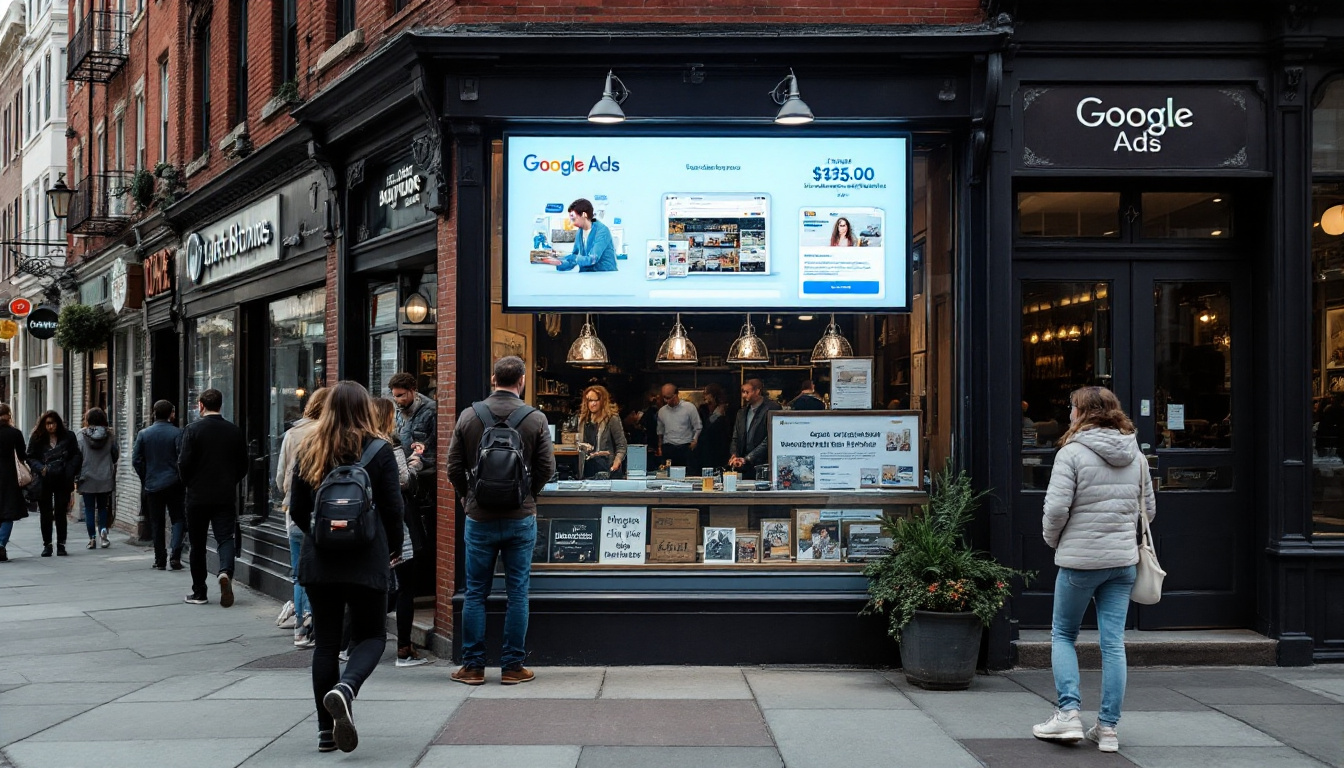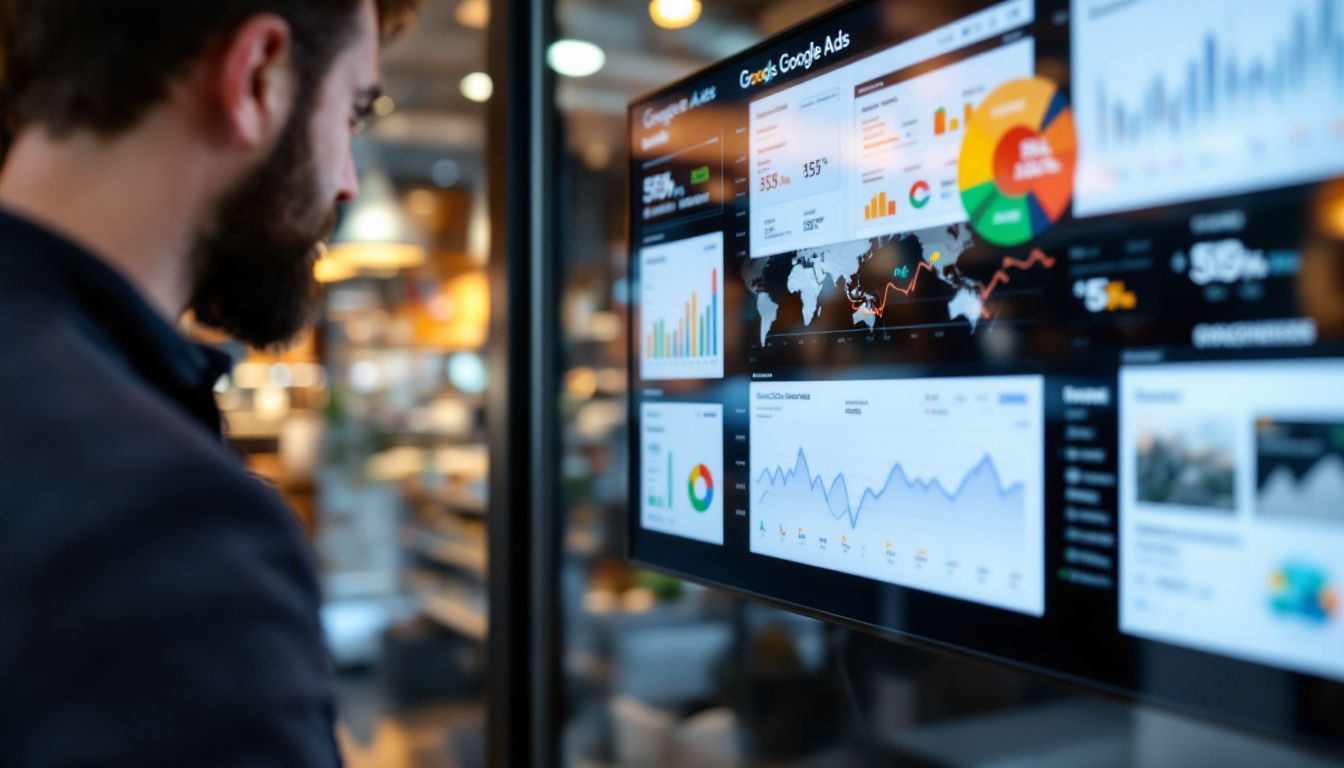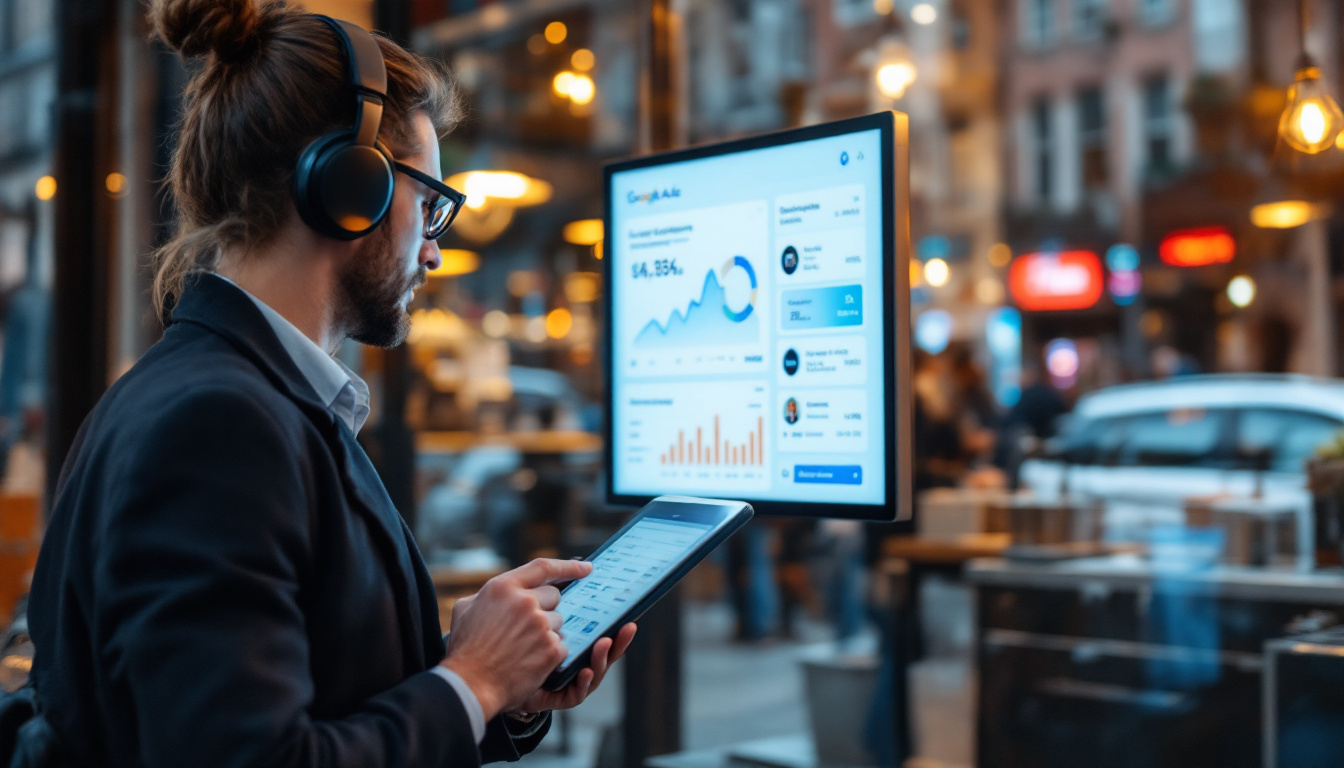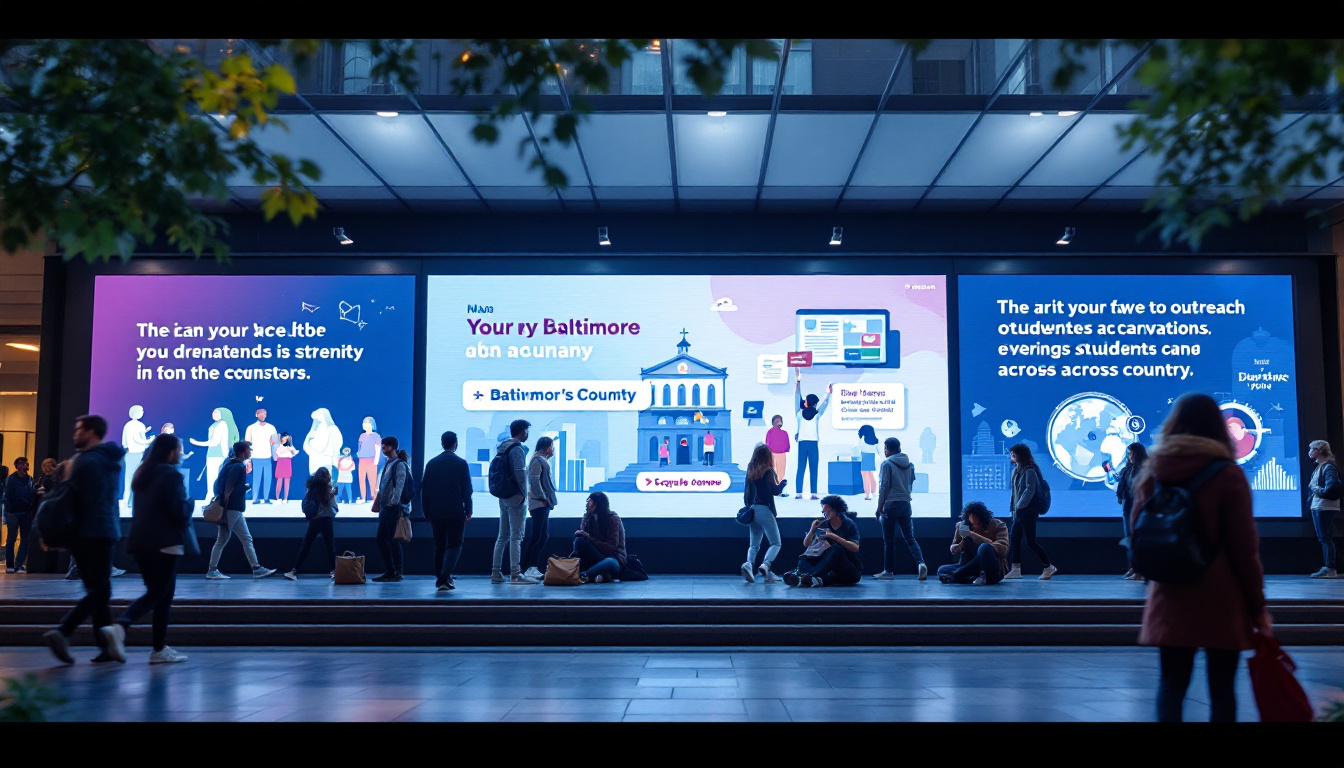What Baltimore, MD Businesses Should Know About Google Ads Updates

In the fast-paced world of digital marketing, staying updated with platforms like Google Ads is imperative for businesses, especially in a competitive market like Baltimore, MD. With Google consistently rolling out updates, it's essential for local businesses to understand these changes and adapt their strategies accordingly. This article will delve into the latest Google Ads updates, their implications on pay-per-click (PPC) strategies, and how businesses can leverage these updates for optimal results.
Understanding the latest Google Ads updates
Google Ads frequently undergoes revisions to improve user experience and ad performance. Recent updates have focused on enhancing automation, improving ad relevance, and integrating artificial intelligence into campaign management. For instance, the introduction of Performance Max campaigns allows businesses to reach customers across all Google inventory through a single campaign. This innovative approach not only simplifies the ad management process but also leverages machine learning to optimize ad placements in real-time, ensuring that businesses can connect with their target audience more effectively than ever before.
Additionally, Google has emphasized the importance of user experience by adjusting its Quality Score algorithms. This adjustment means that ads are now more heavily influenced by landing page experience, mobile-friendliness, and site speed. Keeping tabs on these updates is crucial for businesses to maintain or enhance their advertising effectiveness. With the growing trend of mobile usage, ensuring that websites are responsive and load quickly is no longer optional but a necessity for successful ad campaigns. Businesses that prioritize these factors are likely to see improved engagement rates and lower bounce rates.
New features and tools
Several new features have been introduced within Google Ads, including responsive search ads and customer match capabilities. These tools enable advertisers to create more engaging ads tailored to potential customers’ preferences. Responsive search ads, for example, adapt their format and content based on the searches performed by users, providing a more personalized advertisement experience. This dynamic approach not only enhances user engagement but also increases the likelihood of conversions, as ads become more relevant to the searcher's intent.
Moreover, the integration of tools like Google Analytics 4 allows businesses to track their ads' digital performance more comprehensively. This level of insight helps in making informed decisions regarding future campaigns. With enhanced tracking capabilities, businesses can analyze user interactions across multiple touchpoints, gaining a deeper understanding of the customer journey. This data-driven approach enables advertisers to refine their strategies, allocate budgets more effectively, and ultimately achieve better ROI. Additionally, the ability to segment audiences based on behavior and preferences allows for more targeted advertising, ensuring that the right message reaches the right people at the right time.
How updates impact your PPC strategy
The implications of Google's updates on PPC strategies are significant and multifaceted. As automation becomes more prevalent, businesses must rethink how they manage their campaigns. For instance, automated bidding strategies can lead to varying outcomes depending on your understanding of the algorithms involved. This means that staying informed about the latest algorithm changes and updates is essential for optimizing your ad spend and ensuring that your campaigns remain competitive in an ever-evolving digital landscape.

Moreover, businesses are encouraged to focus less on manual keyword targeting and more on audience targeting. This shift requires a comprehensive understanding of customer personas and their behaviors to effectively utilize Google Ads' targeting capabilities. By leveraging data analytics tools, companies can gain insights into their audience's preferences and tailor their messaging accordingly, which can significantly enhance engagement and conversion rates.
Ad optimization and performance tracking
With these updates, ad optimization has become more crucial than ever. Businesses in Baltimore need to regularly review their ad performance metrics, including conversion rates, click-through rates, and cost per conversion. Google Ads now allows for real-time adjustments, meaning businesses must remain agile and ready to shift strategies based on current performance data. This agility not only helps in maximizing ROI but also in responding to market trends and consumer behavior shifts that may arise unexpectedly.
Additionally, employing A/B testing for different ad variations can help determine which messages resonate most with the target audience. By understanding which aspects of ads lead to successful conversions, businesses can allocate their budgets more effectively. Furthermore, it's important to consider the creative elements of ads, such as visuals and calls to action, as these can significantly impact user engagement. Regularly refreshing ad creatives and experimenting with different formats—such as video ads or responsive search ads—can also keep campaigns dynamic and appealing to potential customers, ensuring that your PPC strategy remains robust and effective in driving traffic and conversions.
Adapting campaigns to new Google features
As Google Ads continues to evolve, businesses must adapt their campaigns to remain competitive. The introduction of Performance Max and the shift towards automation require advertisers to reassess how they structure their campaigns. This could mean integrating more automation into daily operations or adopting a more data-driven approach to decision-making. Staying ahead of the curve necessitates not only understanding the features but also experimenting with them to find the best fit for your specific goals.

Moreover, utilizing advanced strategies like audience segmentation can enhance campaign specificity. By analyzing customer data, businesses can divide their audience into unique segments and create tailored campaigns that address each group’s distinct needs and preferences. This personalized approach can lead to improved engagement and higher conversion rates. Furthermore, leveraging insights from customer behavior can inform future campaigns, allowing businesses to anticipate market trends and adjust their strategies proactively.
Integrating new features effectively
Utilizing new features effectively can involve training team members on the latest tools and strategies available in Google Ads. Regular workshops or courses can help staff stay updated and proficient in these new features, thus allowing your business to harness the full potential of Google Ads in an ever-evolving digital landscape. Encouraging a culture of continuous learning within your team can foster innovation and adaptability, ensuring that everyone is equipped to handle the rapid changes in the advertising environment.
Additionally, seeking case studies or success stories from businesses similar to yours can provide valuable insights into how to best utilize these features. Learning from others’ experiences can guide your own strategies as you adapt to new updates. Engaging with online communities or forums dedicated to digital marketing can also facilitate knowledge sharing and networking, allowing you to glean tips and strategies that have proven successful for others. By combining internal training with external insights, businesses can create a robust framework for adapting their campaigns effectively.
The role of automation in modern PPC campaigns
Automation is reshaping the PPC landscape, removing much of the manual workload associated with managing ad campaigns. Google Ads' automated bidding strategies, for example, adjust bids based on a variety of factors in real-time, which can lead to better performance overall. These strategies take into account user behavior, device types, and even geographic locations to optimize ad placements, ensuring that businesses can reach their target audience more effectively than ever before.
For businesses in Baltimore, these automated processes can lead to significant time and cost savings. However, it’s essential to stay informed about how these automation tools work and their limitations. Relying too heavily on automation without monitoring performance can lead to missed opportunities or wasted budgets. Additionally, understanding the nuances of your specific industry and audience can help in fine-tuning these automated systems to better suit your unique needs, making it crucial for marketers to remain engaged with the data generated by these tools.
Balancing automation with human oversight
While automation is beneficial, it should complement human judgment rather than replace it. Data analytics and market insights are still essential for crafting effective campaigns. Businesses must balance automation tools with a hands-on approach to refine their strategies based on current market conditions and customer feedback. For instance, seasonal trends or sudden shifts in consumer behavior can impact the effectiveness of automated strategies, requiring a human touch to adapt quickly and efficiently.
Regular reviews and adaptations of PPC strategies ensure that the automation tools are aligned with business goals and market realities. This combined approach can maximize the effectiveness of advertising efforts and lead to better outcomes overall. Furthermore, leveraging A/B testing alongside automation can provide valuable insights into which strategies resonate best with your audience, allowing for continuous improvement. By integrating both automated processes and human expertise, businesses can create a dynamic PPC environment that not only responds to changes but also anticipates them, ultimately driving greater success in their advertising initiatives.
Key takeaways from recent Google Ads changes
In conclusion, understanding and adapting to recent Google Ads updates is essential for businesses in Baltimore to maintain a competitive edge in digital advertising. The focus on automation and enhanced targeting necessitates a reevaluation of PPC strategies to ensure optimal ad performance.
Businesses should embrace automation while retaining human oversight in their advertising strategies. Moreover, learning about new features and implementing a data-driven approach will empower businesses to make informed decisions that align with evolving consumer behaviors.
Finally, continuous education and training are critical to staying ahead in the dynamic landscape of Google Ads. By remaining proactive and adaptable in the face of these changes, businesses can harness the full power of Google Ads to drive growth and achieve their advertising objectives.

As a Google Ads expert, I bring proven expertise in optimizing advertising campaigns to maximize ROI.
I specialize in sharing advanced strategies and targeted tips to refine Google Ads campaign management.
Committed to staying ahead of the latest trends and algorithms, I ensure that my clients receive cutting-edge solutions.
My passion for digital marketing and my ability to interpret data for strategic insights enable me to offer high-level consulting that aims to exceed expectations.





























